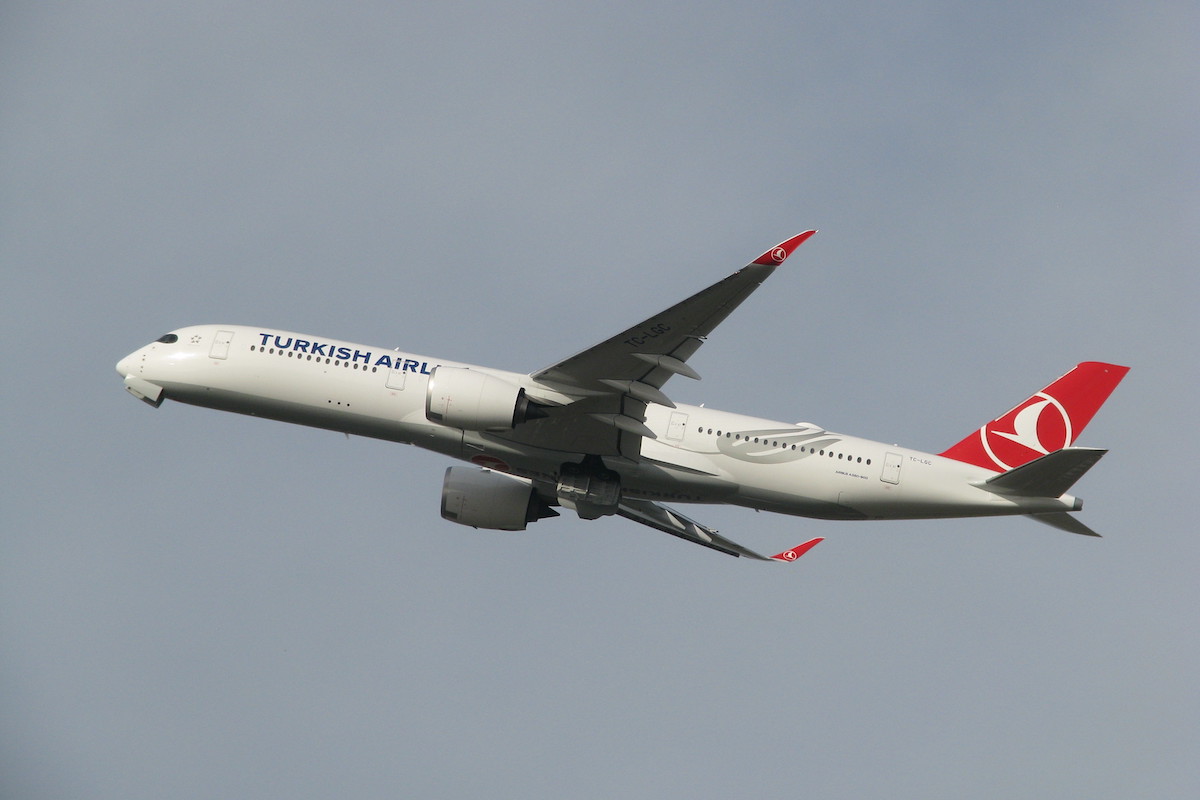Turkish Airlines Orders Up To 345 Airbus Planes

Skift Take
Turkish Airlines pulled the trigger on its long-anticipated aircraft order, opting for 220 Airbus planes. The order could reach as many as 345 planes if all purchase rights are ultimately exercised. It includes both widebody A350s for overseas routes, and narrowbody A32neos for shorter-haul journeys.
On two separate occasions earlier this year, Turkish announced orders for 14 A350-900s, planes that compete roughly in the same size category as Boeing’s 787-9. The new order includes an additional 50 A350-900s, with purchase rights for another 20.
In addition, Turkish will take 15 A350-1000s, which are larger than the -900s. It added five (or 10 with purchase rights) A350 freighters. The A321 order, meanwhile, involves 150 firm units, with purchase rights for another 100.
“The addition of these advanced Airbus aircraft to our fleet will not only enhance our operational capabilities but also significantly contribute to our environmental goals,” said Turkish Airlines chairman Ahmet Bolat.
Turkish Airlines' Fleet
In a November company presentation to investors, Turkish said it currently operates 435 planes, which include Boeing 737s, 777s, and 787s, and Airbus A320/321s, A330s, and A350s. That’s up from about 350 total aircraft before the pandemic, and a mere 98 on the eve of the 2008-09 global financial crisis. Some of the newly-ordered Airbus planes will be for growth, others for replacing older aircraft as they’re retired.
Boeing was hoping to land more orders from Turkish. According to Cirium Fleets Analyzer, the airline has 31 737 Maxes and 11 787s still to be delivered. Sun Express, a Turkish-Lufthansa joint venture airline, has another 32 Maxes on order. Turkish has not, to Boeing’s disappointment, ordered any 777Xs thus far. The 777X is the largest plane Boeing currently sells.
This year through November, Turkish noted in a recent release, passenger traffic was up 17% from the year prior. Some of that growth reflects the reopening of markets that were closed during the pandemic, notably in Asia.
But it also highlights the airline’s remarkable expansion during the past two decades, underpinned by Istanbul’s favorable geography, Turkey’s large tourist sector, and the airline’s unit cost advantages versus European rivals. It’s also growing a low-cost carrier that it owns, recently rebranded as AJet. And it operates a fast-growing cargo airline.
Ten years from now, Turkish aims to have a fleet of more than 800 planes, servicing more than 100 million passengers a year.




